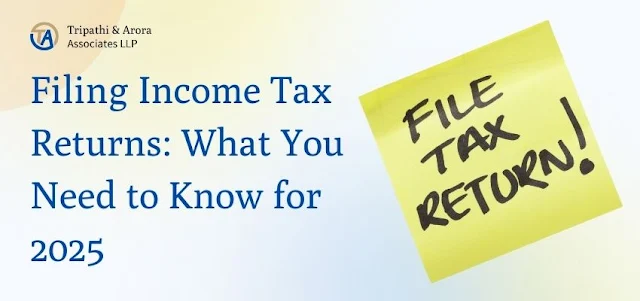Filing income tax returns (ITR) is an essential obligation for individuals and businesses alike. It not only ensures compliance with tax laws but also offers various benefits. This guide provides a detailed overview of the ITR filing process, its importance, and key considerations.
online registration of partnership firms in Delhi NCR
What is Income Tax Return (ITR)?
An Income Tax Return is a form that taxpayers submit to the Income Tax Department, declaring their income, expenses, deductions, and tax liability for a financial year. It serves as a record of the taxpayer's earnings and tax payments.
Importance of Filing ITR
- Legal Compliance: Filing ITR is mandated by law for individuals whose income exceeds the basic exemption limit. Non-compliance can lead to penalties and legal issues.
- Loan Approval: Lenders often require ITR as proof of income when applying for loans, making timely filing crucial for financial credibility.
- Claiming Refunds: If excess tax is paid, filing ITR allows taxpayers to claim refunds, providing financial relief.
- Carrying Forward Losses: Timely filing enables taxpayers to carry forward business or capital losses to offset future income.
- Financial Record: ITR serves as an official record of income and tax paid, useful for future financial transactions.
Steps to File Income Tax Returns
1. Gather Necessary Documents
- Income Details: Collect all sources of income, including salary slips, interest certificates, and rental income.
- Deductions: Gather documents for deductions under sections like 80C (investments), 80D (health insurance), etc.
- Form 16: Obtain Form 16 from your employer, which summarizes salary income and TDS deducted.
2. Choose the Correct ITR Form
Select the appropriate ITR form based on your income sources and category (individual, HUF, partnership, etc.). Common forms include:
- ITR-1: For salaried individuals with income up to ₹50 lakh.
- ITR-2: For individuals with income from other sources or capital gains.
- ITR-3: For individuals and Hindu Undivided Families (HUF) with income from business or profession.
3. Calculate Taxable Income
- Gross Income: Sum up all sources of income.
- Deductions: Subtract eligible deductions to arrive at taxable income.
4. Compute Tax Liability
- Use the applicable tax rates to calculate your tax liability based on your taxable income.
5. Fill Out the ITR Form
- Online Filing: Use the Income Tax Department’s e-filing portal to fill out the form electronically.
- Manual Filing: Alternatively, you can download the form, fill it out manually, and submit it.
6. Validate and Submit
- Validate the information filled in the form and submit it electronically. If filing manually, ensure all documents are attached.
7. E-Verification
- After submission, e-verify your ITR using methods like Aadhaar OTP, net banking, or sending a signed physical copy to the Income Tax Department.
8. Keep Records
- Maintain copies of your filed ITR, acknowledgment receipts, and supporting documents for future reference.
Common Mistakes to Avoid
- Incorrect Form Selection: Ensure you choose the right ITR form based on your income sources.
- Data Entry Errors: Double-check for typographical and arithmetic errors.
- Missing Deductions: Don’t overlook eligible deductions that can reduce your tax liability.
- Late Filing: Aim to file before the deadline to avoid penalties.
Conclusion
Filing income tax returns is a crucial responsibility that offers various benefits, including legal compliance, financial credibility, and potential refunds. By following the outlined steps and avoiding common mistakes, taxpayers can ensure a smooth filing process. Always stay informed about changes in tax laws and filing procedures to maximize your benefits.
Read More:
- Company Registration Process in Gurgaon
Company Registration Services in Gurgaon
Trademark Registration near me
- Trademark Registration in Gurgaon
- Incorporation services in Gurgaon
- Virtual CFO in Gurgaon
LLP registration in Gurgaon
- Trademark Registration in Delhi Ncr
GST registration process
Trademark registration - Filing tax returns in India
